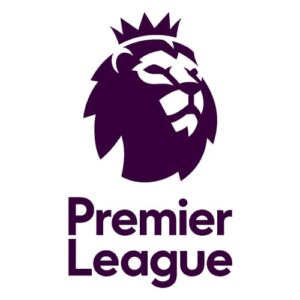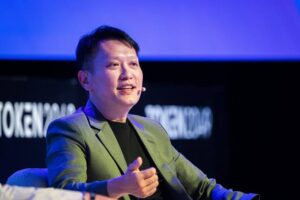When the erstwhile Nigerian Finance Minister and World Bank Managing Director, Dr. Ngozi Okonjo Iweala, was nominated to contest for the position of World Trade Organization’s, W.T.O., Director- General on June 9, 2020, the news of her nomination hit me with a combination of feelings of elation as well as apprehension. I was elated because I have always held her in high esteem, first, as my benefactor in an adjudged highly transparent Federal Government of Nigeria cum World Bank program which she spearheaded some years back and, secondly, due to her intellectual exposition in the areas of development economics, international finance and international business. My apprehension, on the other hand, came as a result of the ongoing U.S.-China trade war which took a new twist since the inauguration of Donald Trump as the president of the U.S. on January 20, 2017. The question that had repeatedly popped up in my mind was: Could she eventually be a victim of this raging trade war by reason of the Nigerian Government’s unholy economic and trade romance with China?
To refresh the reader’s memory, the U.S.-China trade war is an economic warfare currently going on between the United States of America and China. It would be recalled that in the build up to the 2016 U.S. presidential election, Donald Trump contested on a protectionist economic manifesto dubbed: “Make America Great Again”. Mr. Trump had decried the growing U.S. trade deficit and recommended increase in tariffs as means to reduce the trade deficit and boost domestic manufacturing, arguing that the country was being ripped-off by its trading partners – foremost among which was China. In August 2017, few months after his inauguration as the President of the U.S., he ordered the office of the United States’ Trade Representative, U.S.T.R., to look into Chinese unfair trade practice and economic espionage. The findings made available by the U.S.T.R. report revealed, among others, that the Chinese government’s economic policy, particularly its alleged policy of technology transfer and theft of intellectual property have cost the U.S. economy between $225 billion and $600 billion yearly. The most profound aspect of their report, however, was the growing U.S. trade deficit with China which grew from $83 billion in 2001 to $375.2 billion in 2017. In other words, since China joined the World Trade Organization, W.T.O., in 2001, the U.S. trade deficit with China had increased yearly by $18.3 billion, or 9.9 percent, on average totaling $292.2 billion by 2017.
Following the outcome of the U.S.T.R. report, President Trump’s administration quickly imposed tariffs on some of Chinese goods being imported into the U.S., filed a W.T.O. case against China, as well as limited Chinese investment in high-tech sectors of the U.S. economy. In retaliation, the Chinese government imposed retaliatory tariffs on U.S. goods coming into China. These seeming revolting tariffs by the U.S. and the retaliatory tariffs by its rival, China, afterwards snowballed into imposition of series of tariffs and non-tariff trade barriers between the two warring nations. This scenario created a serious rift between the U.S. and W.T.O, with the W.T.O accusing the U.S. of breaching global trading rules by imposing tariffs on more than $200 billion worth of Chinese goods since the inception of Donald Trump’s trade war with China. The U.S., in turn, berated the W.T.O as being biased towards China and totally incompetent in handling international trade disputes.
Curiously, a study conducted by Peterson Institute for International Economics revealed that China’s tariffs on all its imported goods averaged 8 percent in January 2018 prior to the trade war. But by June 2019, tariffs on its U.S. imports had risen to 20.7 percent, while tariffs on other nations decreased to 6.7 percent. Similarly, the study revealed that the average U.S. tariffs on Chinese goods rose from 3.1 percent in 2017 to 24.3 percent by August 2019.
Amid the trade war, global economic growth and Foreign Direct Investment slowed down with the most profound impact seen on the European Union’s economy. The Canadian economy was not spared. Several Asian countries also felt the heat.
With the European Union and the ASEAN region being China’s first and second largest trading partners respectively in 2019, displacing the U.S. as China’s largest trading partner – thanks to the U.S.-China trade war – speaks volume about the trend of support in the recent build up to the W.T.O’s Director-General job contest. Recall that the European Union and most Asian countries had earlier supported the candidature of Nigerian nominee, Dr. Ngozi Okonjo Iweala.
Contemporary students of international politics and economics would recall that the core guiding principle of the foreign policy of any nation that has self-worth is centered on national interest. National interest in this context connotes issues that are of significant economic, political and social interest to a nation. That’s why when the U.S. Trade Representative, Robert Lighthizer, vetoed Dr. Ngozi’s appointment as the new Director-General of the W.T.O. on that fateful day of October 28, 2020, it dawned on me that this contest has taken a new twist; the interplay of international politics bordered on national interest among the W.T.O stakeholders. Lo and behold, my greatest apprehension has come to fruition; an apprehension that the U.S. might rally around a most trusted ally that would most likely do its bidding in the international trade organization, in pursuit of its policy of national interest or America First policy amid their trade conflict with China.
While several sloppy public pundits cited racial discrimination against the black race by President Trump as the core reason for rejecting Dr. Ngozi’s appointment, it should be noted that national interest has always been the overriding factor in U.S. treatment of any critical issue at both national and international levels, and not primitive considerations. It was such kind of overwhelming national consciousness that catalyzed a hitherto never-thought-of Black African-American Presidency in financial crises ravaged U.S. economy on January 20, 2009; a Presidency that majority of Americans embraced as their only saving grace at that time of the global financial crises.
In a move that looks like a smoke screen, the office of the U.S Trade Representative said it supported a rival candidate, South Korean Trade Minister Yoo Myunghee, for the W.T.O’s Director-General job as someone with hands-on-experience in international trade; a move which indirectly suggests that Dr. Ngozi Okonjo Iweala does not qualify for the job. Chai!!! The U.S. seems to have adopted our unwholesome indigenous tactical manoeuvring scheme of giving a dog a bad name in order to kill it. The W.T.O. which is known to work in collaboration with the World Bank, a global multilateral banking institution where Dr. Ngozi had a 25-year career, and rose through the ranks to the No. 2 position of Managing Director must have gotten acquainted with the working of the W.T.O., contrary to the allusion made by the U.S.
With this understanding, therefore, the onus now is on the Federal Government of Nigeria, and of course other pro-Ngozi-candidature, to lobby the U.S intensively and make a concerted international diplomatic effort to catalyze her appointment for the W.T.O. job. This is my two cents.
In all, I wish our own Dr. Ngozi Okonjo Iweala Godspeed and good luck.
The writer of this article, Duruibe Stanley Chigozie, is an author, researcher and an economic and financial analyst. Email: duruibestan82@yahoo.co.uk







